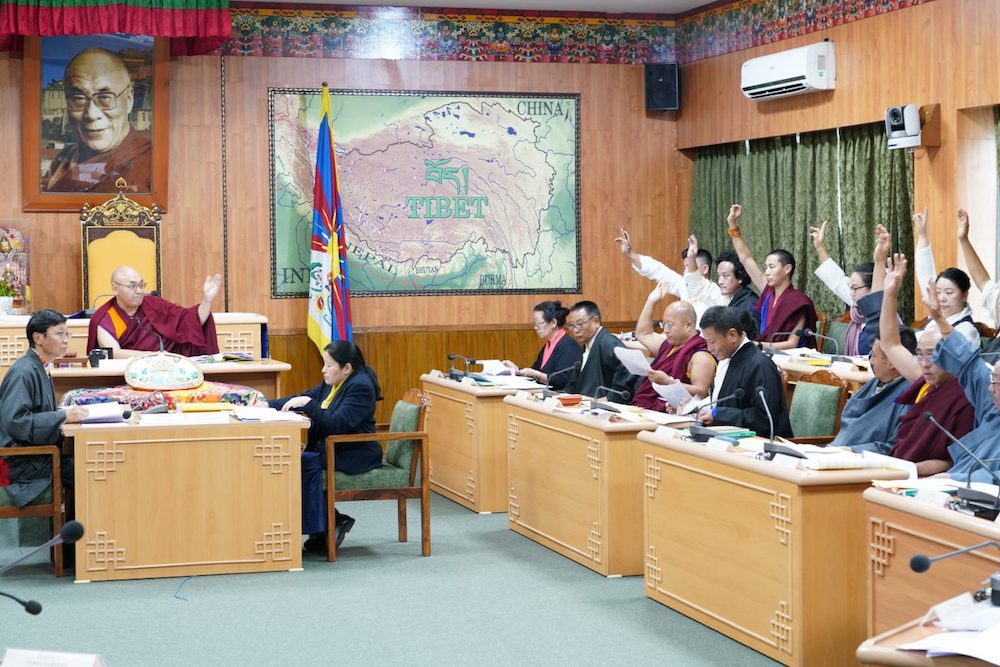By Tsering Dhundup
DHARAMSHALA, March 28: There is no breakthrough in the matter regarding the amendment to the articles of the Charter regarding the nomination of judges of the Tibetan Supreme Justice Commission, as proposals for the same failed the floor test on Wednesday. Members of the Tibetan Parliament-in-Exile are in session to address issues concerning the legislative framework of the Tibetan government in exile, in the ongoing 2024-25 budget session of the 17th Tibetan Parliament-in-Exile.
Proposed amendments by the Charter amendment committee, to Article 63 of the Charter of Tibetans in Exile which pertains to the appointment, oath-taking procedures and tenure of Justice Commissioners of the Tibetan Supreme Justice Commission, failed to gather necessary two-thirds votes from lawmakers.
The proposed amendments to Article 63 aimed to change the criteria for the appointment, oath-taking procedures and tenure of Justice Commissioners. After deliberations and objections by MPs, particularly in view of the ‘document 39’, amendments to Article 63 (I) (II-C)(IV) were repealed following a failure to secure a two-thirds majority vote. The second reading of the proposed amendment to Article 63 (III) which concerns the oath-taking procedures of the justices is deferred to the session on Thursday.
On Monday MP Dawa Phunkyi, the Chairperson of the Rules and Regulation Review Committee expressed confidence in the ongoing process of amending the charter. He also stated, “The most important charter amendment that is needed is to revise the qualifications required for the appointment of the Chief Justice and the other two justices.” “This amendment holds particular importance as it sets the groundwork for the oath-taking provision of the offices.”
During the session on Wednesday, attention was also drawn to an amendment proposed in the parliament regarding Article 42 of the Charter, which pertains to the Standing Committee of the Tibetan Parliament. The amendment introduces provisions for parliamentary representation from regions outside the traditional constituencies which consist of two members of parliament from each three traditional provinces and one member from each religious school. The provision for parliamentary representation from regions outside the traditional constituencies, particularly North America, Europe, Australasia, and Asia (excluding India, Bhutan, and Nepal), failed to secure a two-thirds majority vote.
The parliament also rejected the proposed amendments to Articles 8 (III), which seeks to allow spouses of Tibetans to acquire citizenship after 5 years of valid marriage and cohabitation, and Article 8 (IV) Adoption of a Tibetan Citizenship Act. Amendments to Article 57, which addresses the removal of a member of the Tibetan Parliament also failed to garner the necessary two-thirds majority vote in the house.










